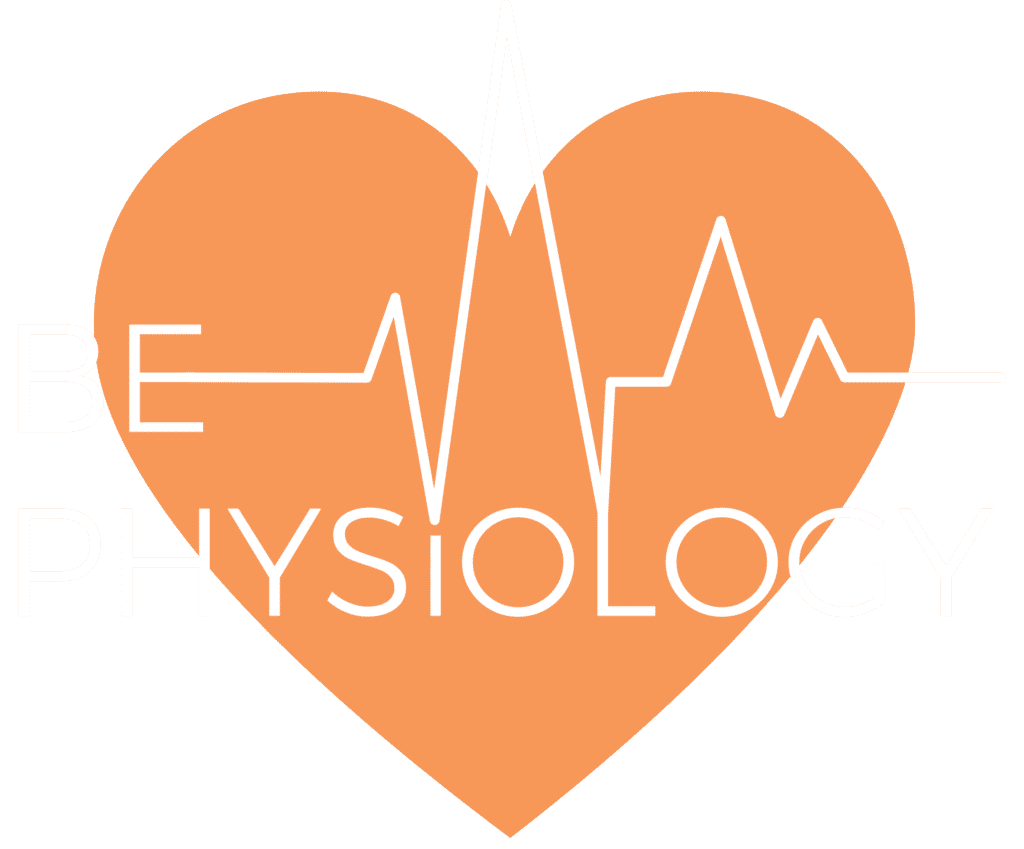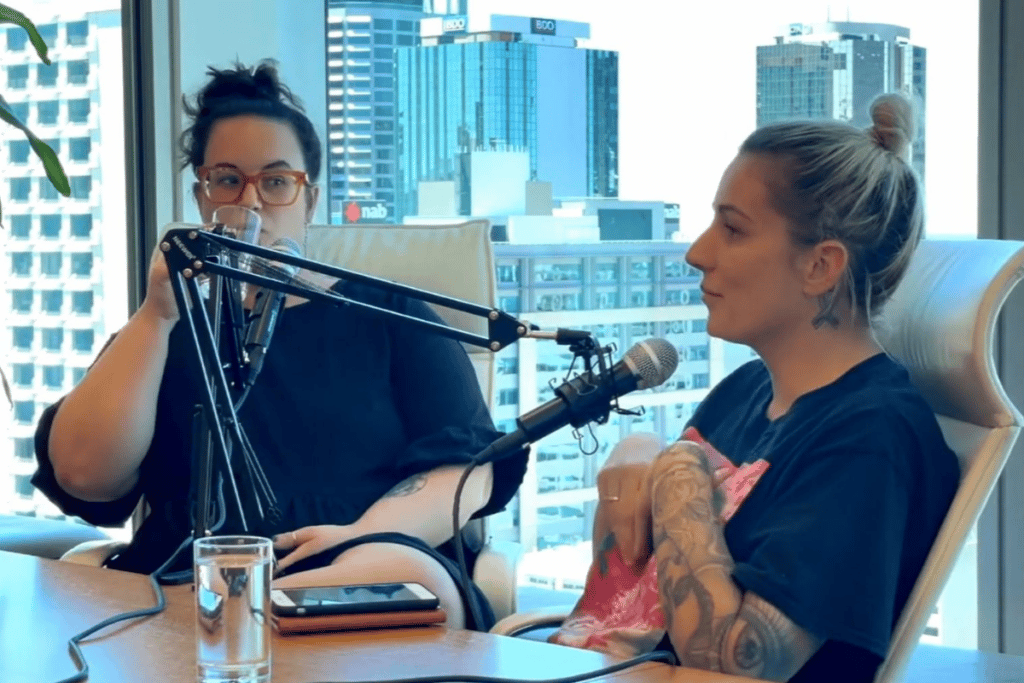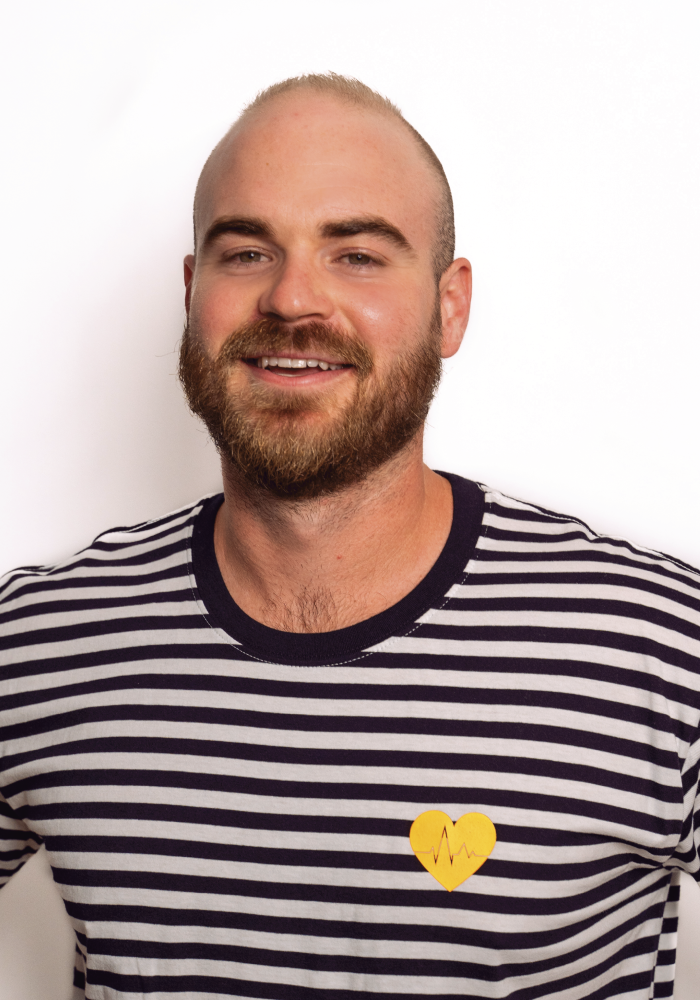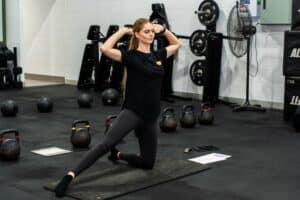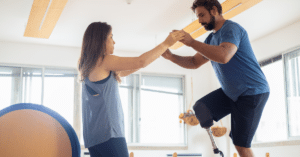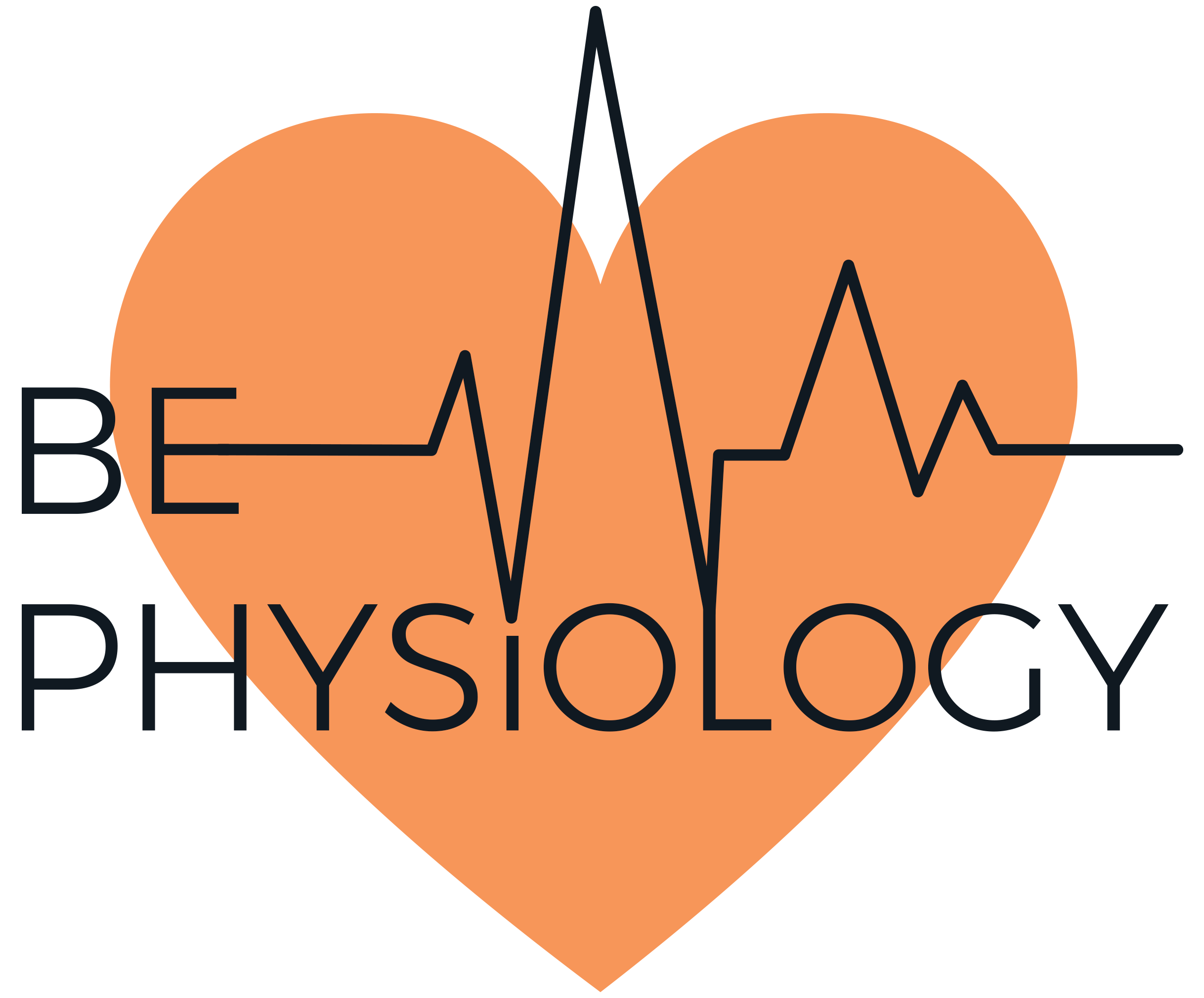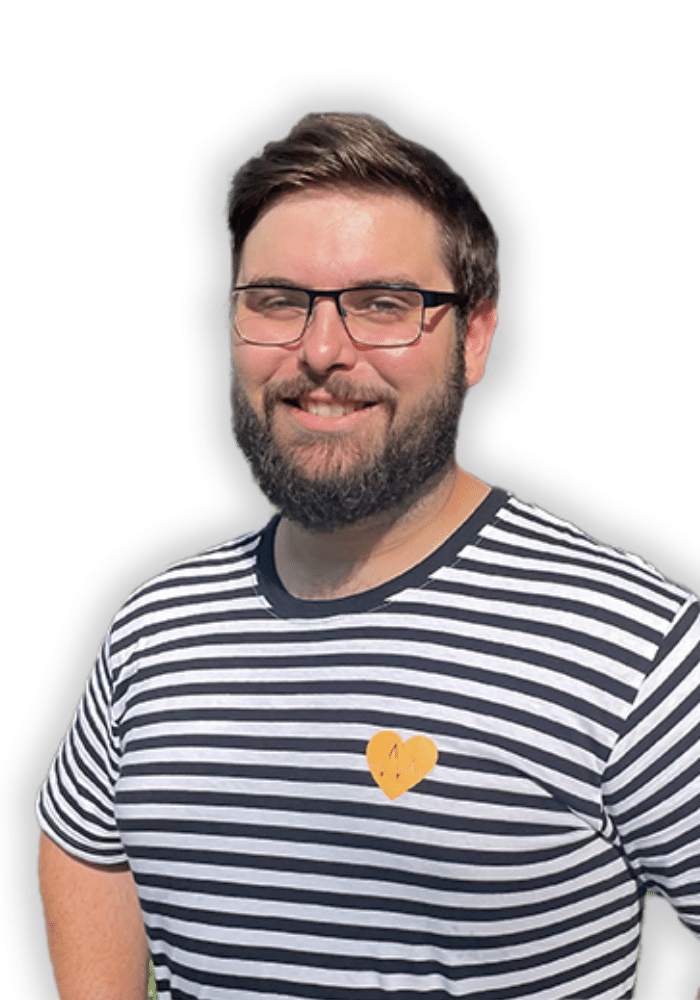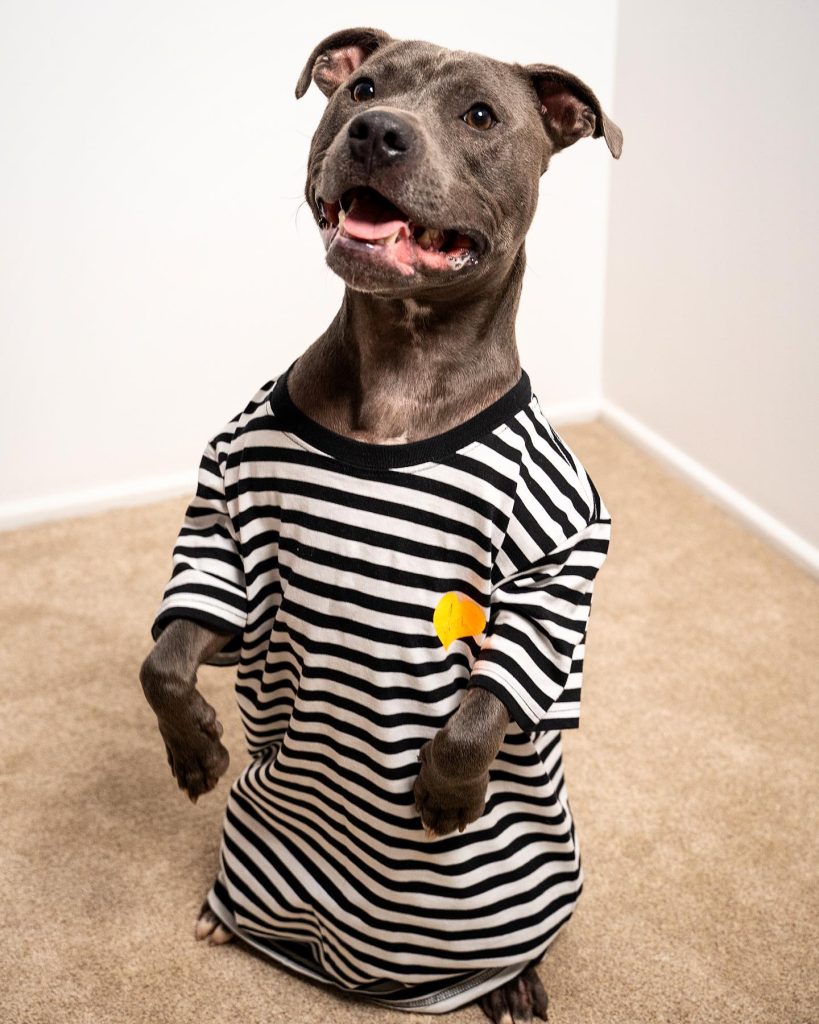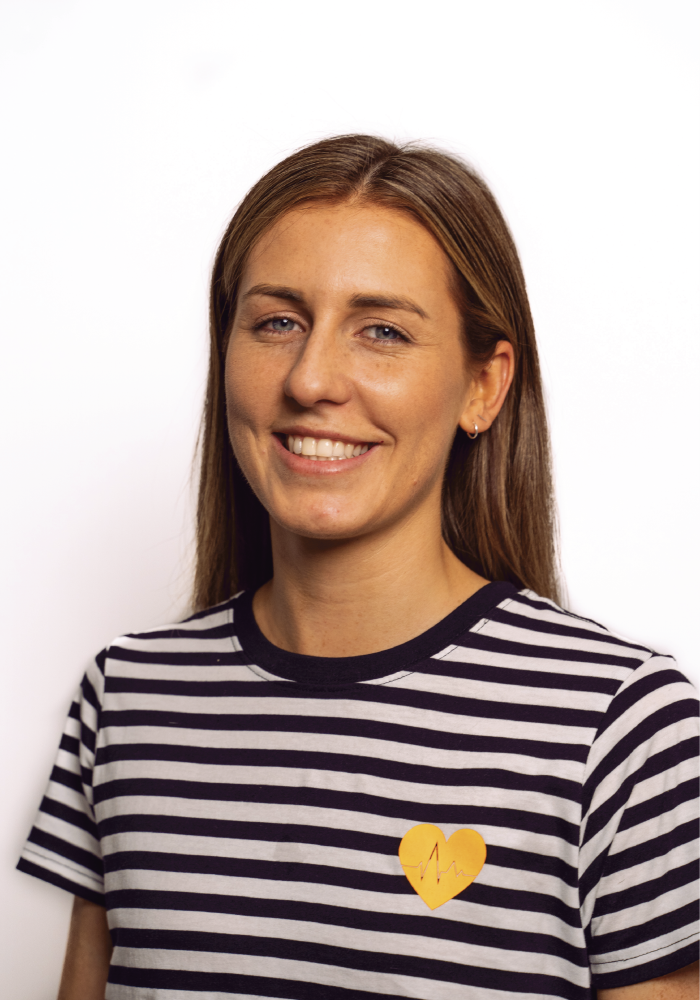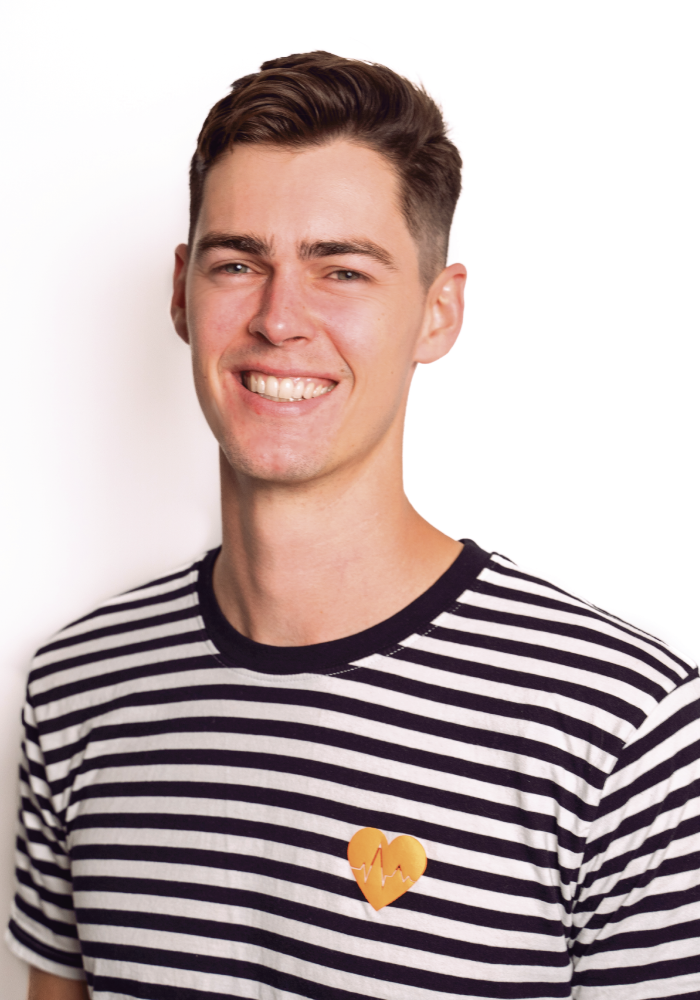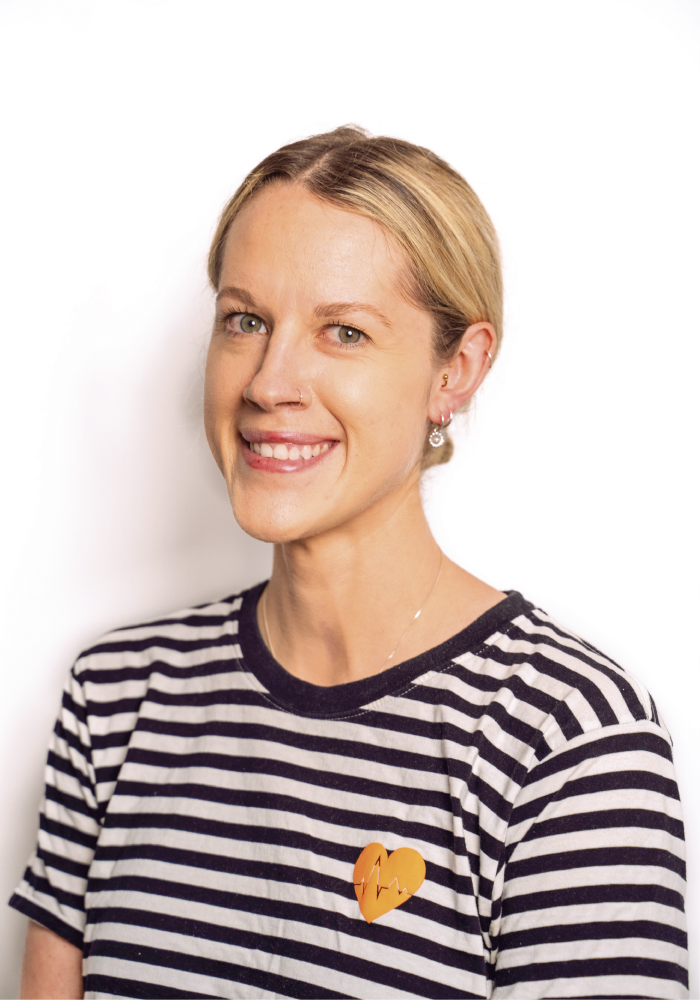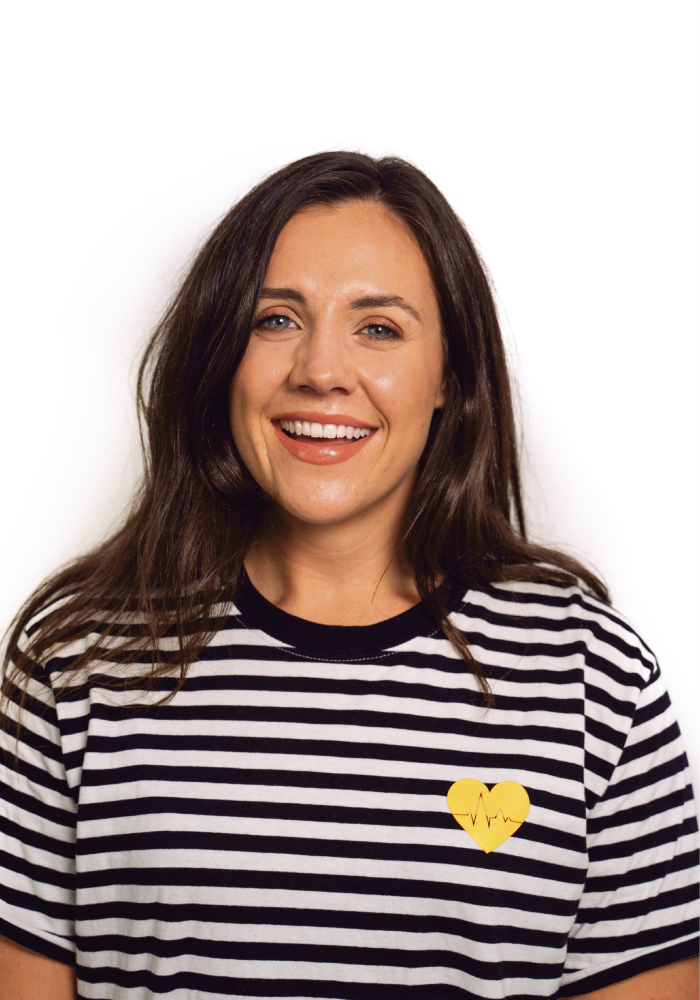It takes a particular sort of person to be a support worker.
In this episode of Be Stories we chat with Emma and Katie about their roles as disability support workers.
We hear how exercise physiology has helped Daelle to improve her overall health and abilities (a shameless plug for us EPs, we’re not even sorry).
We also find out about what it’s like in Charters Towers, a small town in rural Queensland where they are both from. The town has ghost tours, a great pub, and a fireman pole 😉 in the local bowling alley – what more could you need?
In this heartwarming conversation, Katie and Emma tell us how growing up around people with disabilities inspired them to become support workers and we get their top tips for future support workers, we learn what NOT to say to someone with a disability, and the best (and worst!) parts of being a support worker – happy listening!
[activecampaign form=22 css=1]
Transcript
Hello, and welcome to Be Stories, series two of the UNAWARE podcast by Be Physiology where we get to sit down with some of our favorite people, clients, and role models, people that have really shaped our awareness by sharing their stories, and their journeys. We are two EPS. Who work with people every day, living with a disability, uh, helping them to achieve happier and healthier lives.
We are coming at this from the point of view as professionals, but also as friends trying to get a better understanding of the people that we work with. So sit back and enjoy this episode of be stories. When we talk to Katie and Emma about amazing support workers, as we talk about their role in supporting people, living with a disability.
Emma, Katie, thank you so much for coming in today and joining us on our podcast. , just to start off, we asked everyone, uh, but I thought we’d just begin with, what would the name of your autobiography be and whoever would like to start, go for it? , thanks for having us. No drama. mine would be memoirs of my mental.
Beautiful. Yeah. I like that. I’m excited to find out more about that. Emma should have gone first. Emma thanks for having me guys love the podcast. , mine would probably be crazy mess craziness. Yeah. Beautiful mess. Yeah, we go mess crazy beautiful mess. Put it together. Your mental health is a crazy mess.
Yeah. Yeah. Memoirs of a crazy beautiful mess. Yeah. Which. Yeah, let’s do a road podcast. Okay, perfect. No, no, no, no, no. It’s, uh, look, this environment is very cutthroat so we’re gonna need to make sure that doesn’t happen. So tell us a little bit, uh, about yourselves, uh, your backgrounds, where you’re from. All that stuff.
I’ll take the lead, I guess Emma and I are both from Charters Towers. Beautiful. Grew up there. And whereabouts is charters towers. Charters towers is about 130 Ks west of Townsville. You know what I know someone from charters towers, and now I’m like, it must be so small. I mean, I don’t wanna say like it’s Tony.
Yeah. So we would know them for sure. Last name starts with powers. Yeah. Yeah. there are a lot of powers. Yeah. Yeah. Right. Yeah. Yeah, I met it’s 50% of the population. yeah, you guys are there. they’re very friendly.
So Charters Towers, and we both worked at a disability company, actually. Emma’s mom was our boss. Oh wow. Which was awesome. Yep. And also scary. and, and what age did you start doing that type of work? What age did you start? 16. 16. Yeah. Yeah. I started. 16 with after-school care kids. Right. So was it an easy lean because your m was already working in that realm?
Like, is that how that came to be? Or my mom actually wasn’t the boss. Ah, she just worked at the center cause she was scared she went, I suppose, that’s for life by the way. She was a support worker herself and then went into rostering. So she rostered our shifts. , right, but pretty much a buzz.
Yeah, kind of, I guess there’s gotta be some benefits behind your mother rostering your shit shifts though, right? No, no, no. They get all the shit ones. Yeah. We’d get canceled. I’d get all of them. Oh, sure. All stuff. Yeah. Friday, Saturday 6:00 PM. Midnight. Yeah. New year’s Eve news day Christmas. Keep you outta trouble.
May yes. Maybe that’s what she’s doing. Yeah, not really. Is she still trouble? Yeah. Yeah, yeah. Okay. Yeah. Uh, keep going. So, uh, you found an affinity with this work or you, you know, oh, when did you start? 16 and around 18 paid, I guess. I had a brother with autism and it was just second nature, right.
To screw up caring. I was like, I was he’s three years older than me and I was a little baby carer. Yeah. Right. Mom and dad would work and my brother and sister would be, you know, partying or whatever. Yeah. So I was the worker. Yeah. at home. So you both definitely came from a, a background where support work was really a natural progression definitely of your yeah. Life. Yeah. It was like, absolutely. I think one of the questions was, , what do you, what did you do before this? And we are just like, there was it before I did notice you got straight into the, we bought a charter tower and I started support work here. And now we’re here.
Do you find that that’s pretty common in terms of like people who become support workers have some sort of affiliation with support working anyway, because I find that that’s like, I find that to be common? I feel like I see that a fair bit. I mean, I know it’s not all the time, but yeah. Well, I don’t know anyone really, other than us that have, I guess, disability in the family or like grown up with it.
Right. Okay. , I do have another friend who has a sister who has a disability and yeah, she’s on a D. like, it’s just a different way of caring. Right. Cause you know, like you’ve just grown up with it. Oh, right. Okay. I gotcha. Yeah, yeah, yeah. Yeah. So it’s just part of life. Yeah, yeah. Yeah. It’s not like you try or yeah, yeah, yeah.
Or you try, but like it becomes naturally. Yeah, exactly. Yeah, yeah. Yeah. And realistically, to be a support worker or a carer, whatever name you want to give it. , it is like, It really should have a natural feel to it. I feel. Yeah. And I only say that because I see a lot of relationships between, uh, participants and support workers.
Yeah. And the people that stick around. they’re just the good people that are. Yeah. You, you know, they’re at heart. Try doing it for the right reasons, I guess. Yeah. Definitely. It’s not a job. Yeah. Yeah. There’s a lot of people that will get winded out quite quick because yes. Yeah. A lot of people go into it thinking this is easy.
I can look after person. Yeah, yeah, yeah. And that’s just so much more to it, right? Yeah. Like, absolutely. Yeah. The, when you. Into the deep parts of it. It’s pretty. Yeah. And it only was really learning about the stuff, you know, a few years ago. Yeah. Where you’re like, oh yeah. That’s of course you have to do that, you know?
Yeah, yeah, yeah. And you can definitely see the difference as well. Like. Where a support worker is almost like a part of the family by the time you, and then you see the other side of it, which is like a job. And it’s like, I’m here until three and then I’m. Yeah. And then I’m finished and I don’t think about it again.
Yeah. Yeah. I guess that’s the hard part is, well in disability. Cuz if you work for an agency you are told to not. cross that line and yeah, take it home. So that’s like a that’s it has to leave your job part of like the tutorial video. Yeah. Gotcha. But that’s really hard to do well for some people, I suppose.
Like it’s so hard to look after someone and then just the go home and forget. Yeah. And the rational behind that is what’s you don’t wanna become too attached because of essentially like you’re probably gonna get moved on anyway. Yeah. To a different, okay. So they’re try it’s, they’re trying to do the right thing by it, but it obviously like it has its down.
Yeah. And I think more so, so that, , relationship boundaries aren’t crossed, you know, clients as well. I mean, that’s a big thing in our profession as well. Yeah. It’s like, you gotta be, it’s a lot of. Uh, when I was graduating, it was like a big message for, especially for young girls around, like, without working with athletes and stuff like that, it was like, it’s it happens.
And it’s usually not a doesn’t end. Well, yeah. So that was just like a message that was out there. Yeah. , so crossing that, , that. That barrier or that border can be a bad thing, but it can also be a really good thing. Yeah, totally. Yeah. Yeah. Yeah. Uh, so obviously you decided to do support work for different reasons, uh, friends growing up or just knew each other in your town, or we wouldn’t, we didn’t go to the same school.
I think we be do that. I was gonna say I had two schools in Charters. I was like, her’s easy. There are actually four. Wow. I went to. Schools cause I was naughty I’s I did go to school with Katie for a little bit, but I’m younger than Katie. So we weren’t in the same grade. Well, let’s dive into how naughty you were.
What did you do?
I’ll ask the powers about it anyway. They’ll tell me. So you both work with one client of ours? Yes. And that is Daelle. And if, if you have seen, uh, any social posts of ours in the past, Daelle frequents our feed. Yes. And our, uh, and our, uh, news feed. Yeah, because one she’s so photogenic and two, you guys are so involved with sharing her life to everybody as well.
Yes. Well, yeah. I was gonna say you guys are equally like, uh, available on our socials in terms of the support that you guys give and the commenting and whatnot, you guys are always yeah. Yeah. Yeah, totally. I feel like you’re in our corner. That’s why we have you here. Absolutely. Otherwise, if you’re in our corner, we’d be like, we can’t have ’em on don’t invite S such a good point.
yeah, no, I think you guys are just amazing and Daelle’s amazing. And she needs to have her own voice on social media. Just as much as anyone. A hundred percent. Couldn’t agree more. How did you guys end up working with Daelle? How did that begin? Ah, well, I started with Daelle a few years ago while she was still with a company, not out on her own.
The difference between an agency and private, uh, what can you explain that a little bit? So agency is where you just work for someone you don’t really get involved with the family or if they want to, I guess you do privately. So this is my second job privately, and it’s just. Like incredible.
So different than working for a company. I would say just so much more support, like her family. Just give us a lot of support and just we’re allowed to love Daelle. Yeah. Yeah. You know, they know that Daelle loves to give cuddles and that’s such a, yeah. We’re allowed to love it back. Yeah. Whereas companies, you have to, even with cuddles, like you have.
Yeah. Do not give them over time. Yeah, yeah, yeah. Yeah. But with Daelle, we just like j p in bed with her. when she’s waking up and it’s just awesome. Yeah. No, she, you know, you don’t have to be in the room long to realize the relationship that you guys have with one another and with Daelle. Yeah. Uh, because it, yeah, it’s, it’s black and white night and day.
When, when I compare you guys to some others. People or carers that I’ve come across in the past. For sure. Thank you. No, look, if we’re given compliments, it’s gotta go both way. You also don’t have to spend too long, uh, with Daelle to get a hug. I already had an advantage at the beginning of meeting Daelle. Yeah. So I met Daelle back when I was working at a private clinic. We, you know, it, it was just, it was this weird handoff where someone had left and I. To take on Daelle and, uh, take on seems like a weird word for yeah.
So I got to work with Daelle, and then just at the start, I remember being like, this is hard. Yeah. This is so hard. Yeah. She, she, uh, presents as she, she can’t vocalize, she can’t communicate verbally. She does say a series of words. Uh, she makes plenty of sounds and she laughs a lot, which is lovely.
That’s amazing. But it’s just, as you know, it was years ago now. So I was a younger man and it was just. It was very hard to, I was thinking in my head, can I do my job? Like this? Can I, can I, because she’s the most complex dis disability. Yeah. I’d say so. Yeah, definitely up there, especially people that I’m working with at this point.
I’ve been working with her for years now and it’s just, when you get to know her and, and on a professional side, get to know how her body works. It’s amazing what we. Can achieve together. Totally. Yeah. And you can just see, since you’ve been working with her, how much she can move and what she’s capable of.
It amazes me a lot. Yeah. You know, just cuz she’s the perfect example of someone where , Other professionals, like I’ve heard many stories of doctors being like, look, there’s not a whole lot of future here. Yeah. Uh, put them into care home and let this ride out.
I’ve had a few clients with that and they’ve come back and Daelle is no, uh, exception. Like she has a family that loves her. Yeah. Uh, and that’s, you know, that’s huge. And she does some amazing things. Yeah, yeah. Yeah. Well, her, , quality of life is just amazing and she wasn’t meant to. Live past town. Yeah, exactly.
Right. Like I have a good story that involves you guys. Oh yeah, go. So I recently Daelle to an endocrinologist appointment where they were checking her bone density. , so when she was a teenager, her bone density was really bad. I don’t understand all the technical terms, but, her bone density come back.
Very much improved with no need for medications or anything like that at this point, because of the physical therapy that she was doing with your parents. That’s how good is that? Huh? Yeah, so she and her parents were so fricking happy that they could come away from an appointment. with something that Daelle has done positive.
Yes. That positive and negative. Cause it’s always a negative when they go to doctor’s appointments, right? Oh, that’s cools. Yeah. That’s awesome. You might be able wipe this small off my face. I would actually imagine as well. Like obviously I don’t work with Daelle. Harry works with Daelle. , And you guys as well, but I imagine that that quality of life that you talk about and that increase there would allow you guys to be just as big a part of that increase in her bone mineral density.
Cause that has just as much of just get, being able to stand up is enough to sort of like positively affect that. So it’s all three of you. We’re such a good team. Daelle has nothing to do with it. It’s all us and she doesn’t even work hard. I sometimes look her in the eye when she’s doing something and she’s just staring at me, like, what are we doing? She’s like, I just wanna sit down. I’m like, you can do it. It’s so good. Cuz you just push her, you push her like enough for her to gasp and then by the end of it, just like, and she tells me too as well. She used to tell me really early on in the session.
Yeah. And now she doesn’t. So she’s like sporting wheelies. You’d have to have a lot more breaks and now it’s like go almost the whole hour. Yes. Yeah. At the end of it, she’s like, I hate you.
So you started working with Daelle first and then Emma, you came along when, when did you start working Dell? Yeah, so, uh, probably over a year ago now. Yeah, I had. A baby. So, and he was about eight months old when Katie reached out and asked if I wanted a job. And I was like, yeah, sure. Then I thought about it.
And I was like, nah. And she was, I can leave the kids. And I was like, I’m not sure if I’d be able to juggle around. Yeah. You know, but I went and met the family and they were just amazing. Yeah happy to work around. You know what availabilities I have with the kids and yeah. Just so supportive around everything.
Yeah. Every single thing. Yes. Yeah, yeah, yeah. I definitely get that five as well from, yeah. Yeah. What’s the other side of that. What, I mean, obviously like the other side of it’s not being supported as well, but like, what are some of the examples of like that level of support that you see when you’re able to work with somebody?
Like Dell’s family and the opposite when you’re through an agency and you’re sort of just in and out, I guess you don’t have much to do with the family at all with an agency. Yeah. Look, you know, very little, I suppose. Whereas with privately hired, you see them all the time. Yeah, you’re there at pick up and drop off.
Whereas at an agency you, you have to refer back to. The agency and, , you can’t really talk to the parents about care or things like that. It all goes through the agency. Right. Okay. So there’s always a filter. There’s a middle man type of thing. Yeah. Yeah. Okay. Yeah. Which is hard because you know, Chinese whispers happens.
You can’t hand over something. Yeah, exactly. Right. Ah, yeah. You never know the information that’s actually gonna come through the other end. Yeah. Yeah. I think also they just, I guess for me, this is my first private. Employment, job. I was always through an agency and I guess just anything they’re happy to listen to our mental health issues and they’re supportive of that.
And just all of that. So I wouldn’t say that working through an agency is a bad thing. like it, hasn’t definitely not. It’s great. It’s just, Daelle’s family is just amazing. Yeah. And it’s, I suppose it it’s a lot to do with how much we. Meet see them talk to them. You know, they know all their struggles.
They wanna know how naughty the kids were this weekend. yeah. They wanna know love drama. Very, yeah. it’s always the same answer. yeah, it seems like it’s more of an extended family than anything. Oh, totally. Like totally. And understanding that that’s necessary for the care of your daughter, son, whatever.
Yeah. I think, yeah, that I couldn. work. I’d have to do just private now. Yep. Cuz I’ve just been spoiled. Yeah. Okay. Yeah. Yes. Yeah. and on that note, why is finding someone like Daelle so important when it comes to a job like yours? Well, yeah, back to the family. It’s just that support. I mean, Daelle is incredible in herself and when I worked with her through the company, it was awesome.
Yeah. Cuz she was great. But having a family connection and just being able to say I’m having a shit day. I hate everyone. and they’re just like, do you wanna go home? And I’m like, no, can I take Daelle somewhere or something like that, you know? , yeah. Okay. It’s just, well, for me, especially just that support, cuz I’ve had really horrible times with companies where I just haven’t felt supported. Okay. And I just have quit cause I’m like, okay, see ya. And then that doesn’t go with my morals of, I guess, looking after people. Exactly. Right. Yeah. But then I couldn’t look after myself feel that tear. Yes. Yeah, totally. I can absolutely understand that. It is, you know, for people who are looking to start caring.
Or support working out there. Do you have any kind of little recommendations, like say that they’ve, you know, met up with an agency or something like that? Do you have any kind of little recommendations for people out there just for starting off in the business? I think a good one is. If you are supporting someone, just think, just put yourself in their shoes.
So with Daelle say she can’t really do much for herself from scratching her nose to scratching her ear. So sometimes she’ll wiggle her nose and it’s just like, oh, here let me do this. And then she can scratch her nose. Yeah. Right. Yeah. Yeah. So it’s just thinking, what can this, yes. What does this person need?
That can’t communicate it to me. that I can do. So just thinking about. I don’t know an itchy back or, yeah, just that would drive you nuts. If you had an itch that you could not scratch. Yeah. 100% and like, , 100 food and water. Like these people can. pick what to eat. So you have to, you know, and you gotta mix it up.
Sometimes you gotta, you know, this isn’t working. Maybe you enjoy this, or like being able to change things up all the time, right? Yeah. Yeah. So a bit of perspective in their shoes and being able to change things around a little bit to help. Yeah, the situation out a little and everyone’s so different. So it’s been able to adapt to different people.
Yeah. What do you, how long do you think it? Oh, sorry. I was gonna just on the back of that, cuz you’re talking about like picking up on those things. How long do you think that it generally takes to get that level of understanding with the client? Because especially when you’re working with different people all the time, or if you were, when you were.
It’s all over the shop. Yeah. That takes a, that’s a skill. Yeah. That’s a real skill. I imagine figuring out that somebody’s itchy is a skill, it takes a while to master thirsty or hungry or things like that. Yeah. It’s definite skill, but I think just being aware and just being present with your client.
Yes. Yeah. Don’t play on your phone. true. Get off of your phone. Yeah. Yeah. I mean, I, I definitely have come. Uh, some situations where support workers are like, okay, sweet. You are good. Mom’s gonna, and just leave you get outta the room. Yeah. I’m like, how are they gonna help stay your buddy? Yeah. Stay here with us and look what I’m doing.
And then I’ll tell you if there’s something you need to do at home. , you know, like little things like that. Yeah. But you know, but some people are the people that are invested in not only in the job, but the people in front of them. present in those moments. He probably even more so, cuz they’re like, there’s an opportunity here that I don’t understand.
Yeah. And I wanna try and get a leg up on that opportunity and try, figure out how I can help out a little bit more. Yeah. I reckon just treat him like normal people. Oh, just normal people. Definitely different needs, you know, they might need a little extra help in brushing their teeth, but that’s just, they’re the same as you and I, I guess.
Yeah. Yeah. , I found working in an agency. Probably shaped me into the carer. I am, you know, there was a lot of rules and regulations, but, but the agency that we were trained in is much different to yes. Okay. Our agency that I’ve worked in. Okay. I’ve worked in a few, but the one that we trained in, in little town of Charters Towers had all the like rules and regulations.
And you knew like you were trained really well. Right? Not. So I’ve been to some places. In Brisbane not to talk shit, but you know but do I not? Yeah. Where they just don’t train. You just throw you in yes. Places in Townsville that, yep. Yeah. Oh, is that a size thing? Do you think it’s a scope of like, it’s like a level of separation when the business is so big?
Totally could be, could be the staff rollover percentage, like in big city, I suppose you’d go through a lot more in a small town. You don’t know. Right. You don’t have many options for jobs. , you’re either gonna know if you can do the job or not within the first few weeks. So, so if it’s not for you, you move on kind of thing, but it’s hard, right?
Like you learn. And, you know, it takes have to, yeah. Yeah. It’s just being, being trained properly is a big thing. I think I do. I do definitely relate to the turnaround thing. Yeah. I think a lot of the time, the some, uh, carers I’ve worked with, it’s like, I see them. like, they’ll have a few different carers.
And they’ll just kind of pop in and then I’m like, oh, this is the good carer. Yeah. You know, you know what I mean? It’s like, this is the person who pays attention and is yeah. And always is asking questions and stuff about that. And then it’s like, goes cycles through. Yeah. Uh, a few other people and, uh, and then the, the good person comes back and you’re like, sweet.
We’re back on, you know, like, so, but, and, but even it’s, it’s hard. It’d be so hard to be that person and stay attentive yeah. To those things as well, because you keep on getting put in and then taken out. Yeah. Then put in and then taken out and put in. I can imagine that would just, at some point you go, what’s the point.
Yeah, because I’m seeing this person once every three weeks or something like that. Totally. It’s like, well, why should I, you know, invest all this effort into something that I know is probably not getting emulated. Yeah. Throughout the rest of the, yeah. Why am I doing all this work when the other workers are just bludging?
Yeah. And that’s, that’s a hard question to ask and, and for the answer is probably just what you said, you know, it’s like, yeah. You know, it. Or that’s people’s caseload. Yeah. I like, if you’re at an agency, there’s say 50, , participants. Yeah. Now with the N D I S, which is awesome. Yeah. You can choose your own support worker, so you might choose three.
Yeah. And those three support workers might have been picked by 40 other participants. So, you know, yeah. You’ve gotta try and stretch that one person around. And I. I guess that’s why you might have them only once every month. Okay. That could, could be a reason. I just made that up. No, I didn’t make it up, but that’s just sounds logic.
That’s a great answer. Yeah but back to that is also, Sorry. I was gonna actually ask you, , in terms of, you know, caring is such a as, and the main point we’ve been talking about, it’s such a, you need to be a particular person to do the job, right? Definitely. What are some things that scare people away?
What are the things that people can’t cope with poo poo? Yeah. Yeah. That’s it mainly, yeah, just poo poo personal care, but personal care probably down to poo. So personal care in itself is kind of its own little subset of caring. Totally. Yeah, absolutely. Can you explain that a little bit? So, , you do everything you personal, so just imagine that you can’t shower yourself or blow your nose or.
You know, put deodorant on, oh, wipe up your butt. Yeah. you know, so you have to think of all those things. Yeah. And then, yeah. , you know, you work with women that are still on their still get a menstrual period. So yeah. Your job is to, you know, deal with that. Yeah, yeah. Yeah. So personal care is its own little bubble, I guess.
Totally, but yeah, the way that I think of it. Oh, I’d hate to be, not be able to do that myself. Yeah. Yeah. Do you know? So you want to give them, you know, the best kind of yeah, yeah. Cleanness. Yeah. Especially in that, like absolutely. In that environment where, yeah. It’s so, and you know, we probably say this a lot on the podcast, but it’s like, You don’t realize how good you have it.
Yeah. You know, you just, don’t totally you until you can see it or be like really involved in it. Yeah. Cause you can see it and be like, oh, that’ll be shit. Right. Yeah. Pun intended. But like, it’s just so hard to put yourself in someone’s shoes and be like, it would be so horrible. To have to have someone do this for me all the time, you know, or yeah.
But you have to think like that too, without feeling sorry for them as well. Yeah. Yes. A fine line or not even a fine line. It’s more just a recognition. I think that you get, once you realize that you’re doing it. Yeah. We all exactly. Yeah. Yeah. You know, it’s we are all the same. it’s interesting having everybody shits, that’s the name of my auto Barbara and people
That’s great, okay. So, it’s usually that kind of personal care thing that scare people away. Yeah. What keeps you. What’s what are the things that you kind of find, uh, in the field that’s kind of keeps you coming back. Daelle’s face Daelle, everything about Daelle is just, you could just be having the worst mental health day or just the worst day.
And she’s just like, hello. And you’re like, Hey, she’s just, yes. I had no intentions of coming back to be a support worker. after the birth of my first son , my first son Holland was born with a disability and I, my idea was, I guess, I don’t think I can live with it and work with it. Yeah. And have that right. Just be my life, your life.
As he grew, I thought I. Can’t think of a better job in the world. Yeah. Because one day he will need a support worker. Yeah. And I want them to be like me. Yeah. You know, I, I would like a person like me to support my son and I think it’s made me become a better carer. Mm. Definitely, having that lived in experience and just thinking of them as if.
well, I mean, they are someone’s son and someone’s daughter and someone’s brother and sister and they’re. Yeah. They’re just, just people. They’re just people. Yeah, yeah, yeah, yeah, yeah, yeah. Yeah. I think I had a similar thing. So my brother with autism passed away, and after that I went back to work.
I was working for a company and. . I was just like, I don’t wanna do this anymore. I’m not doing it. Like I don’t need to. And then I got the opportunity to work with Daelle again, privately. And I was like, yes, yes, 100%. but it’s nice to have that break. I think, to be like, Oh, no, wait, I really do love this job, right?
Yeah. Yeah. You can kind of step back and you have a better perspective of what’s going on. Yeah. Yeah. Okay. Definitely. Ah, that’s cool. It’s, it’d be such a lovely realization as well. Yeah. When you kind of get to the point where you’re like, this is something I actually enjoy doing. Yeah. And you’re fulfilling someone’s life.
Yeah. And fulfillment. As we learned about yesterday, even, ah, yeah. In one of our workshops, that’s the thing you’re looking for. It’s not pleasure. It’s not excitement. Those things are fleeting. It’s how fulfilling something is. Yeah. Yeah. And, and if you, and I think that being a support worker is literally the best job.
In terms of fulfillment, if you are the right person for the job. Yeah, yeah, yeah, absolutely. Well, you just mentioned that with your son, that at some point he’ll, he’ll utilize the support worker as well. And you said that he wants, or you want someone like you to be the support worker. Yeah. What’s the fear of having someone that’s not like you, like, what, what’s the other side of that?
What does that look like? You know? Oh gosh. What if they were the asshole, you know, like, oh, what if they were nasty to him? Or, you weren’t attentive enough and he fell over on a curb or something. So my son’s legally blind. , just, you know, there are some not great support workers out there that are just there for the money.
Yeah. And I guess. . I want someone that loves him. I, you know, I’ll be, I’ll be his carer. Don’t think the problem is solved. So shut this down. Yeah. How we ask? Yeah. You know it, if someone doesn’t fulfill yes. Their G life too. Yeah. Cause it’s gotta. Impacting him. Yeah, I have. And this is not as a reflection of support workers and generalists.
I wanna preface it by saying that, but I have actually like a client of mine has had a conversation with me where they were told by their agency, that support worker. I think she had a bad run with one support worker. Yeah. And the agency basically said, look, I’m sorry, but like at times it just attracts that time, this type of work attracts that type of person.
Yeah. And. Like obviously you guys, and then Harry and I get to see the other end of that, which is like that really like attentive and caring support worker and it is kind of sad that at least for some people who’ve had to use the service, not ex like, uh, external to the world, but, , can have that picture of what support work is or what it can be, which is just people who are just sort of just like there waiting around for their shift to end.
Yeah. Yeah. Yeah. Well that. Yeah, definitely. I think some people get the idea that being a support worker is taking someone to the movies. Yeah. And it’s easy. This is where I was leading is like people have this expectation or this perception of what the support work is, but like, what is that discrepancy between what the average person thinks support work is?
And what is it actually? And it’s, it’s not just going to the movie. If there is some people. You know, someone to the movies, you wouldn’t enjoy the movie because you’re doing stuff, you know, you’re watching them the whole time. Right? Yeah. I mean, you would enjoy it. I mean perks, but yeah, exactly. Right.
You’re not going to watch a movie. Yeah. Right. You were there every day with someone. Yeah, yeah, yeah, yeah, yeah. Okay. Totally. I ruin movie. I love movies, you know? Yeah. I couldn’t be working moves, but I think you just relax. Yeah. Yeah. Like, I, I, it all depends on the person as well. Like we are speaking. Uh, the perspective of support workers for someone with a severe and intellectual.
Yeah. Like disability whereas if someone just wants the companion to go to the movies that’s okay. Yeah. That’s awesome. Guess that’s a very good people. Might just ass e that that’s all you do. That’s that’s, that’s it? Yeah. That’s a good point to make’s an example, but you know, I guess some people get into the field and realize it’s not that easy.
Yeah. You know? yeah, it can’t, couldn’t possibly be easy if you were doing a job. Exactly, exactly. And I guess in the big cities like here where they just need workers. Yeah. You’re gonna get. Crappy workers and it’s really not fair. Yeah. On, , the, the participants that receive those crap workers. Yeah. , yeah, it kind of seems like to me, the cream, instead of rising to the top kind of gets pushed out to the sides.
Yeah, yeah. A little bit. So like, you kind of get that idea of like, yeah. Oh, I love doing this, but I don’t like doing it here. Yeah. You know? Yeah. I’m gonna get out here. People are lazy. Yep. They’ve got, you know, easy. Yeah. To some people think, but some it’s it’s someone’s life. Yeah. Yeah. You know, you’re fulfill, you’re working for someone’s life.
Yeah. And there’s so many things you can do with a client, like yeah. It’s especially like Brisbane, boundless. Yeah. There’s so much you can do. Yeah, yeah, yeah, yeah, yeah. It’s and definitely with you guys, you’re a prime example of. you always try and choose something, you know, different or new, or what’s an experience, you know, that type of thing is always on your radar.
Yeah. Yeah. Which. I know people out there listening, you know, thinking like it’d be good to have a support worker who is like keen to get out and go do stuff all the time. Yeah. Do anything. We tried to take Daelle on a boat once or we wanted to, her dad was just like, maybe wait until I can come with you.
Like I had a planned hold to that. so with COVID changing the world, uh, and more and more people deciding to travel. In a state for holidays and things like that. You guys obviously coming from charter towers, a sleepy town in Queensland. Yep. Uh, do you have any kind of take on the accessibility of these like country, these little country towns in terms of, if someone’s listening right now and they’re like, I’m keen for a holiday, where do I go?
Is there any kinda points or things you can add to this discussion? Do you want us to plug Charters Towers? I want you, I want you to do whatever you want to do. All right. Okay. Charterers towers. It’s terrile. the accessibility. Yeah. Like the, so the main street slopes. So driving a wheelchair. So driving a wheelchair is very difficult.
If you have a manual wheelchair or if you have to manually push yourself in a wheelchair. No, very shops have like a step. Of course, many shops don’t have even a ramp that you can access. Yeah. But I’ve noticed that a lot in Brisbane. But that community is beautiful. Yeah. Right. They really rally around people with disabilities.
You know, organizations will hire people with disabilities and, and upskill them. Yeah. Awesome. You know yeah. The organizations there that support people with disabilities are awesome as well. Yeah , it’s that real small town community. Everyone knows everyone. Yeah. You know, you know, all the yeah.
Everyone’s and they say hello. Yeah. Yeah. So don’t just holiday there. Move there. Yeah. Move there. Definitely move there. there’s not a lot of, you know, for activities, you know, you can’t just go. No, do awesome things. Bowling like Southbank. Well, there is a bowling alley. Okay. Bad choices are virtual reality.
Something that sounds great. Didn’t know what to be explaining about accessible though. Oh, no, you couldn’t get in there. Yeah. Oh, no, you can from the, no, you can’t. Yeah, you can from the back actually can cut that. Oh no, no, no, no. , we’re talking more about this bowling alley in the park. Yeah. Okay. Well, it used to be one lane, two lanes, two lanes.
They took out the strip mini balls. Nice. They took out the stripper pole to put it in the, ah, wow. Last. Then they put the strip pipe back in. Oh, really? A community initiative. Yeah. One way to rally together. One way to distract you from your bowling. Yeah. Just got balls the whole time. I’d love to see that petition to get that pole back.
So Charter’s towers, but yes, it’s lovely. It’s a beautiful community, and unfortunately, little things like that you never really think of, but we’ll probably change that soon when we go there. Yeah, exactly. Yeah, absolutely. And you guys are heading back there in the future as well. So you’re gonna have an impact on that community.
Obviously, when you get back, we’re gonna mine. This is main street. Yeah. yeah, that’s it. That’s it. Okay, so what about other little, I guess information on accessibility around, you know, obviously driving to charters towers or other little pit stops along the way. Do you ever notice anything that you’re like, oh, that’s, this actually could be a great place to bring someone, uh, with a, who uses a wheelchair or this is possible for this or that?
Or is it all pretty, it’s pretty spread it. Like it’s a. Very small town, right? Like it’s an arrow. What about surrounding Townsville? What about all the, any other surrounding towns or anything like that? Townsville? Townsville’s the closest type. I’d say Townsville’s, accessibility’s pretty much like here hit and miss, I guess for, so yeah, we used to take the clients out to out west to that, , pub of course.
Yeah. That had animals out the back Pentland BES Creek. I. Oh, yeah. Mm. Okay. There’s like little tiny towns with like a thousand people, right? Yeah. We’d go out for drives out there and beautiful. There was like, A petting zoo or something. Yeah. Okay. So it is, it sounds like it’s gonna be a tricky go for someone who’s using a wheelchair.
Who’s keen to get out rural Australia or rural Queensland. You know, if you like the heat and flies, go out charter out. I mean, it is a lovely little town. It’s a history town. Yeah. Gold mining. , Look, I’ve lived there my whole life and I’ve never done a single tour. So I can’t even tell you what they offer idea.
There’s probably tours all around the town. Of course, my granny does a, like a ghosts of gold tour. Oh, you are kidding. Yeah. Where she reads like poetry. Oh yeah. That’s accessible. I’m under that. Yeah. So there would be things I would say we just I’ve been community. is so great that if you ask them to help you out with you’d get the answers that you totally, yeah.
Someone would find a way to make it work. Yeah. Right. Like there was a, , horse and cart, Christmas cart that went around. Does all the Christmas lights every year. Oh yeah. It just drives on the road. Oh, okay. We would horses. Yeah. Okay. Yeah. Like, like Santa slate type thing or, yeah. Okay. Yeah. And back before manual handling was the thing you could just lift up the clients and take them in there and, you know, And they were lovely more than well willing to help kind of thing.
Someone’s yeah. Someone would be willing to help. Yeah. before manual handling was the thing real quick, like it’s like before. Yeah. If there were rules on how to lift someone correctly. Right. I think there have always been rules, but we didn’t know them. that’s that? So then, yeah, with can handling it is, it is tricky because the rules are like, you can’t lift more than 20 kilos of someone’s weight or something like that.
And you can’t. Yeah. It’s like they do some pretty, , from what I’ve looked at, it’s like some pretty vague wording in the way that yeah. That it’s. If they have, if you have to help them transfer at all, it’s like, you can’t, you can’t do it. Yeah. But with Daelle, right. She can stand. She can thanks to you.
She can walk. She can bloody, she walk is so easy, right? Yeah. And she, if she’s, she has been in a hoist, I have never seen her in a hoist, but she freaked out. Wasn’t a good time for her. Gotcha. Yeah. So her being able to, you know, help yeah. Is awesome every day on her feet. Yeah. It was huge. Yeah. Uh, so just moving on.
Uh, so how do you think people and I, and it’s, and this is a question I’m purely just shooting at you guys. Cause I know you well , how do you think people perceive your job as opposed to the reality of it? Huh? We were talking about this the other day. Yeah. When people say, oh, like take my hat off to you.
Yeah. Oh, I could never do your job up. Shut up. Yeah. It’s you’re literally, you’re supporting another person. Like, yeah. It’s not a big deal. Yes. I think people must just ass e that it’s all poop. Yeah. Right. Just cleanup shit that all the time. Yeah. Well you are sometimes, but yeah. But when they say they take the hat off to you just it’s really confusing, like, cause we’ve yeah.
And understand. What about helping someone is so great. Yeah. Like we’re not superheroes, we’re just people helping people. Yeah. And people are like, I could never do it. Why? Or you got, thank you. Have you tried? Yeah. Like random people who come up, like, thank you for you doing you’re like, yeah. And it’s like, fuck off.
Actually have a client of mine back in the day who he was just like pushing along, uh, at, I think it was Bridge to Brisbane or something like that. And like, Like came up behind. I’m like really good intentions, but just like, you’re so brave for what you’re doing. It’s like, oh, Ugh. So brave. Oh, I find that touch the, you know, to get up outta your bed in the morning and come here and do this push it’s like so brave.
It just seemed like obviously, the intentions are good, but it’s, if you look at it, Any other way than there’s one, mindset’s like it’s cond, condescending, and it’s. So it does really come from a nice place, but it’s like, don’t just keep that to yourself. That’s the one example story that you would love to show just everybody once just be like, just to think of how that looks.
Yes. If you take yourself out of it for a second, cause yeah, like you said so well-intentioned, but it’s. Yeah, but it’s a, a condescending thing to say patronizing. This is coming from a parent. Oh yeah. With a child, with a disability. They say it. And you, you just like, why really? Or how do you do, how do cope with that?
Do you cope with that? It’s like, just the same as you. My kid’s still an asshole bite hole sometimes, you know, like he’s still naughty and he’s the same as yours. Yeah. Yeah. His eyes just don’t work the same. Yeah. Or, you know, that’s it. Yeah. That’s it. That’s literally it. Yeah. Yeah. I find that even. I’m just picturing that and that just made me angry.
Yeah. Yeah. Oh yeah. Like, I mean, he’s fine. He’s not deaf. He can hear you say that. Yeah, exactly. He’s right next to me. And then for him to think, oh, you know, I, is there something that wrong people need to feel sorry for my, to my mother about, about me. You? Yeah. Yeah, a client of mine, on the he’s probably like 50 him and his wife just had a baby who has down syndrome, and he was telling me that when the, they were told initially that the baby had down syndrome. So before the birth, that the doctor was like, Super apologetic and was like, yeah, it was a really weird thing. But funnily enough, he’s joke. Like, my client has like joked now because the baby is like, just, he said this for the best baby ever.
Like it’s chillers, like, , just for babies in general. And then he jokes about how like, doctors should apologize if your baby doesn’t have dance joke because he’s got four other kids who like, are all just like maniacs. Yeah. But this is the one that you want. Yeah. That’s awesome. That’s great, Like though my brother’s, having a baby soon.
And my dad, when he found out was just like, no, because, you know, cuz we have a brother who had autism and it’s like, that’s not the worst thing that can happen. Like autism, like awesome. Yeah. Yeah. Like more funnier or we, we work with so many kids with autism too. Yeah. And I notice, and maybe this is me.
Not attentive to normal kids. Yeah. Atypical kids. I don’t see any difference. No, they’re all crazy at all. Yeah. Yeah. They’re all insane. Yeah. Yeah. Literally all insane. Yeah. Kids do. They have all the power and they don’t even know it yet. So frustrating. It’s like you project these things. Yeah. But the kids are just kids.
Yeah. You know? Yeah. Yeah. And the only person who’s seeing ’em different is, you know, a jerk. Yeah, you should. Yeah, pretty much. There’s a TV series on, Hey, you could do this. I’ll what’s that you could review it. It’s called loop on Disney plus goes for about 10 minutes. It’s a kid short about, a younger with autism nonverbal and just how she sees.
Yeah, what she sees. Oh. And it was so interesting to watch. That’s awesome. Yeah. Loop on Disney. Didn’t you say? Yeah. Disney plus. Yeah. Disney. Yeah, I got it. I got everything. I’ll it? , it’s a very short film, but it was super interesting to watch about how her brain was working while everything was going on and why she had the meltdown that she did.
Yeah. Because of all the things leading up to it. Super good for kids to watch. Yeah. Yeah. Okay. Cool. And also new support workers should watch. Yeah, right? Yeah. Just so if you want a good little insight in terms. Working with someone with autism. Yeah. I guess more so for kids. Yeah. It’s short.
They won’t lose interest in it and it’s just helps explain the things you can’t explain to your kids. Yeah. Nice. That’s a great, yeah. Okay. Loop Disney, plus check it out. yeah. Okay. So, , another question I wanted to ask you, and we’ve kind of touched on this a little bit, but why are you guys such advocates for excise physi?
because you’re amazing. and that’s the answer I was looking for. Yeah, no, just like, , the difference in Daelle, like what she can do and now compare to when she started, and I guess it’s like everyone, like a regular h an, you have to. Do the things to keep healthy, right? Yep. I’m not gonna do it, but I actually, didn’t still fighting back.
Yeah. I didn’t know. You guys were a thing like no, me your job was a thing until no, I met Daelle , probably because Harlan is still so small. He’s only ever worked with a physiotherapist yep. But the idea around what you guys do makes so much sense. Yeah. Doesn’t, you know, it just, yeah. Every I move every day, like yeah, exactly.
You know, that’s yeah. Yeah. And we, we, we often say, you know, you’re just, you’re at even greater risk. If you are, if you have a disability to that impacts your movement at all. Yeah. So why isn’t that like a thing it’s like, it’s so big for us. It’s like, if you don’t exercise and eat well, you’re gonna die early.
Yeah. It’s like, well, Isn’t that the same change? Yeah, totally. And it doesn’t matter who you are or what your limitations are. You guys can help hundred percent. Yeah. You doesn’t, there’s a way that you can do something help or exercise can help. Yeah. Yeah. We just fall under that. But, but yeah. Yeah. Movement and exercise, it always helps.
It’s never not appropriate, which is such a good thing about it’s like, I think if someone. Came in, came to one of Daelle’s physio sessions. You’d be like, oh, she’s not really doing much, but she’s doing so much for her. Like as much as she can do. And it’s just helped her so much, but yeah. Yeah. But, and, you know, as we talked about before, it’s like she can do more now.
Yeah. So it’s like, and her bones are better and her bones are stronger. Yeah, exactly. So, yeah, just like thinking about that. do you like you how’s that changed your job the way that Daelle’s been able to improve her function? Well, I think it it’s very important throughout the week. Like that we go to the sessions like that is big.
Like, , and then I think just when we don’t have a session with Harry or like there’s a day we miss or a public holiday or something, we can still move her, like help her to move. , is that the question? No. Well it’s however you interpret it kind of, I guess. Yeah. It’s more, it’s no, no really helpful with changing and yeah.
You know if she couldn’t weight bare, it would be a lot harder. And I guess, because the fact she is scared of a hoist. Yeah, yeah, exactly. It would be a really hard thing. You would have to hoist her. Cause if she couldn’t support herself as good as she does. Mm, yeah. You wouldn’t be able to transfer her.
Yeah. Cause the next thing is you have to hoist. Yeah. Well, that’s it. That’s not the choice. Dad is not a tiny girl. She’s a 22 year old woman. She’s you know, she’s heavy. Yeah. Yeah. So if we can prolong. Having to use her voice. Yeah, exactly. Right. Yeah. And just her movement in general, like it’s her brilliant.
Yeah. Yeah. No, that’s great. And she’s so strong. Yeah. She is so strong. Yeah. Sometimes we’re doing something and I she’s, I make her hold like a wall squat type position for minutes. Yeah. And I go into a wall squat and I’m at 45 seconds. I’m like, oh I think back I’m like, she got some strong legs on her, you know?
Yeah. But so you would. Talking to other support coordinators and, and, support workers. , would you, so you’d definitely recommend if this, if someone’s looking to the, get more mobile, more functional, healthier, you’d recommend exercise physiology a hundred percent. I could think of 10 people off the top of my head from the old organization me would benefit greatly from it.
Yeah. Because we only ever did physiotherapy with, , You know, with, with clients and physiotherapy was much different. Yeah. Completely different, I suppose, obviously. Yeah. Then what you guys do? Yeah. And there wasn’t much in a way of showing us how to do it. Well, it was, they went once and then we had to do it and then we were just kinda like, I don’t know.
Yeah. Yeah. There was a piece of paper that would show you how to move your foot. Yeah. You know, and you do that obviously. Yeah. they weren’t exercising. It was just helping there more movement, like their joints and stuff. There are so many people that would benefit greatly, man. Definitely. You guys will have to come to Charter’s towers.
Yeah. I’m actually a little, we’re not going anywhere else. So I’m like might as charter. It’s got a good wrap. Open up a Be Physiology up there. We will run it. You guys can take over. Yeah, we can’t do the physio side. we’ll figure something out. Figure something, give a piece of paper and show you how to move the foot.
There is definitely a need for it in rural areas. Yes. I mean, if you could find workers down rurally that’s yeah. Needs it. The most is rural areas. I mean, rural areas. Everything the most integrate more. We talk about it all the time. Cause that whole thing is accessibility. Yeah. Like that’s the whole part of us being mobile is trying to make it a little bit easier access service and not sure we’re here now, but, but it all applies to what you’re talking about.
Yeah. Everything that we are talking about in the future is like, we want to be able to. H give people the opportunity or the option yeah. Who live out in other areas to definitely even like use the service and stuff and then you could just go out there. Yeah, yeah, yeah, yeah, yeah. Cool. A couple nights, you know, and then like yeah.
A lot of things in the work up here. Yeah. Well, my dream in Charter’s towers is to build, , fully disability. , Accessible accessible. Thank you, Airbnbs. Yeah. Oh, beautiful. That is such, because I’ve got a lot of people who are looking for accessible vans for holidaying and stuff like that. Yeah. Yeah.
But the Airbnb thing is it’s an issue yeah. It’s an issue. Totally. For sure. It’s like, you gotta dig around and then you find that one and that one’s booked until then. And then you’re like, okay, I’m not going there. Yeah. 50 other Airbnbs around it, you know, it’s just like, that’s the ones, your options, you know, the accessible one.
Yeah, yeah. Accessible Airbnbs. Yeah. Yeah. Would be awesome. Yeah. Yeah. That’s absolutely. Yeah. , we’ll take over the world. So in terms of a, in terms of a, was it the, uh, memoirs of mental health? Oh, And the crazy mess. I don’t really see much of that bubble up to the surface at all during the, oh, we’re very, we know how to hide our mental health. Yeah. We’re really good at it. Yeah. We’re medicated. That’s why bubbling. Oh, anxiety’s why we’re laughing.
It’s a neurological thing. Yeah. Oh my God. I see it now. Yeah. H do you have any other questions or anything like that? no. I think the only question that I have is what you’re about to ask anyway. Yeah. So thanks so much for coming down and chatting to us. It was awesoe. Uh, but I just wanna ask you, what do you guys see?
When you see this photo, our best friends. two best friends. What’s about TikTok, where they, McKayla and someone forever. We should do that. We’re going to do it now. The,
yeah, no, it looks like everyone. The moment you guys are just like really good mates and. And married. Yeah. Can work really well together. It’s lovely. Yeah. Yeah, yeah. Yeah. We’re pretty lucky. Yeah. I have something to say that you could have to cut it and put it back. Yeah. Go support coordinators. Yes. It would be beneficial for support coordinators to, , look into you guys more, uh, they possibly know who you are and what you do, but I, I would say there’s a good chance they don’t.
Yes. Yeah. You know, I know with my son’s disability, there’s a few quite important therapists. You know, people that have gone to university for this job and they have no. Who they are, what they do, so trying to explain to them that an orientation and mobility specialist is not a physiotherapist is right.
Is hard. So I feel like there should be minim training on therapies. Yes. Yeah. And, you know, couldn’t agree the importance of them so that if someone goes in there with, with a young child and they don’t know what the future looks like or what support’s out there, they can say, oh, you know, I think your child would benefit.
Exercise physiology. Yeah. And physio it’s like, they don’t really know. We didn’t know anything about exercise. It’s physiology. It’s a pretty fair thing at the moment to not know about exercise physiology. I think. Yeah. When we go and talk to people, we we’re talking about BFIs, we’re talking about xFi first.
We’re barely talking about what we’re doing. It’s like, what us as a, as a profession is. Yeah. And then when people kind of get their heads over that, then we’re like, you can use us as well. Yeah. Yeah. That’s it. Yeah. And I think that’s the hardest thing with navigating NDIS, is trying to explain that to a stranger on the phone.
Why why it’s important when if, if there was some basic training materials given, they would understand why it’s important and it would be such a fight as to why you should be funded for that type of definitely. Yeah. I, yes, from the outside looking in, I could not agree more with that statement. Yeah.
It’s just, you know, like we know professionally the good that we can. Yeah. And then just getting like, and having sure it is and yeah, yeah, yeah. And just you can’t, they’re like, oh no, that you have, they have like 400 bucks in that category or something for the year. And you’re like, why it’s like for improved health and wellbeing, they have.
$400 for a year. It seems only split between speech OT and, and physio. Yeah. Yeah. And that’s yeah, yeah. And whatever else you want, you’ve sort of gotta try and cut out one of those. Yeah. Yeah. You gotta, yeah. And not even in the context of those, but if like you put a little bit of funding into exercise therapy for a year, then that next funding cycle, you don’t need to put as much into.
Whatever it is because somebody has more independence and, and functionality on their own because if’s been a year building it up. Yeah. Absolutely sort. It’s tight. Yeah. So yeah, that education around that is pretty much what we’re trying to do as much as possible getting out there and just chatting to people about it.
Because as you said, it’s just not known. No. Yeah. And that’s the thing. It makes so much sense. Yeah. But it’s not something that I’ve ever no. And you know what, this sounds terrible. Cause I do know someone that is an EP. Mm. But I just didn’t know what she did sheet. Yeah. Yeah. And exercise physiology is notoriously bad at telling people what they do.
I just thought hundred. Personal trainers. Yeah. Like, you know, making people exercise on, think anything more of it. Look, you’re not wrong. Like you’re not far off the mark. I think there’s some, some, they would be a little bit, guess a little bit of science here and there don’t get caught up in science though.
Bad haircuts.
I can see the back of your hair has grown. I haven’t seen the back of my head yet. Have you oh, She doesn’t wanna talk about it. Well, thank you so much for coming down. Really appreciate it. It has been a lovely opportunity to talk to you both. Uh, and yeah, thanks for having us. Thank you. Yeah. Thank you so much.
And thanks for everything you do for Daelle. And for everyone you follow Daelle on at Daelle B or at @SnaelleGarden. And also to, @DaelleBot. She’s famous.
I hope you enjoyed this episode of Be Stories, the UNAWARE podcast by Be Physiology. Don’t forget to like and subscribe and on all of our socials check out the podcast and our other episodes. And if you like it, leave a comment, and let us know how much you love it.
